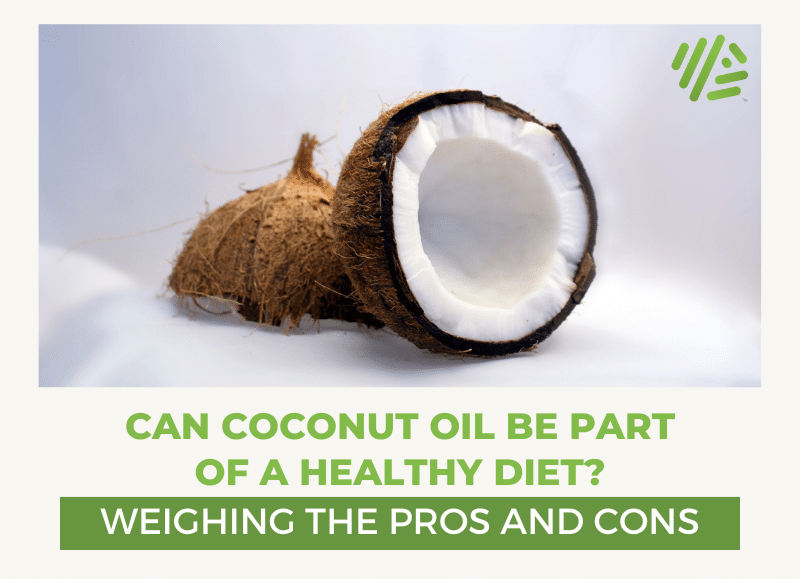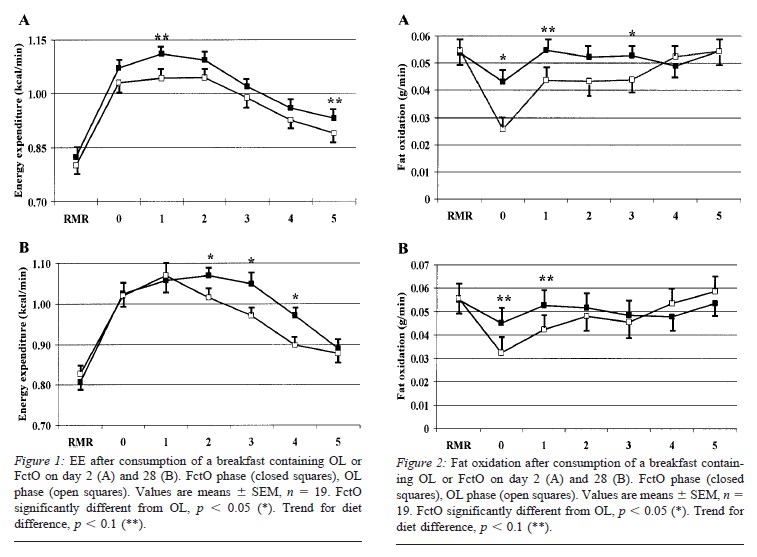Does Coconut Oil Have Health Benefits? Separating Fact From Fiction

Contents
The American Heart Association (“AHA”) says coconut oil is bad for your heart health. Is this true or can coconut oil be part of a healthy diet? Let’s break down the evidence for and against coconut oil as a superfood.
Coconut oil and oral hygiene
Our call: definitely healthy Coconut oil has been used for generations in Ayurvedic traditions as tool for maintaining oral health. The practice, known as “oil pulling,” involves swirling coconut oil in the mouth, sometime for as long as 30 minutes. Pulling is usually done in the mornings. There is a basis in science for oil pulling as the lauric acid found in coconut oil has been shown in multiple studies to have a potent antimicrobial effect. This study from the Nigerian Medical Journal found that oil pulling helped, alongside other treatments, to reduce dental plaque and gingivitis in teenagers. Benefits were found after 7 days of treatment.
Coconut oil as a brain booster
Our call: efficacy questionable Coconut oil contains a form of fat known as medium chain triglyceride or “MCT.” The two major benefits attributed to MCTs, and therefore coconut oils and fats, are:
- the promotion of fat burning and;
- mental sharpness.
MCTs have been shown to increase energy expenditure and decrease weight gain (or promote weight loss) when compared to long chain triglycerides (LCT) such as olive oil. 2 3 The increase in mental sharpness is thought to occur through the increase of ketone bodies. By eating a high fat, adequate protein and low carbohydrate diet, fats rather than carbohydrates, are preferentially used to provide energy. When your body burns fat instead of glucose, you are in a state of ketosis. Ketogenic diets have shown promise as cognitive enhancers, so to the extent coconut oil helps in achieving a state of ketosis, it may have some brain boosting benefits. However, it is important to point out that it is possible for most people to reach a state of ketosis without eating coconut oil. There is a lot of evidence that ketogenic diets can have a beneficial effect, having historically been used in the treatment of childhood epilepsy. 4 As coconuts are rich in MCT’s, they have become a preferred source of fat for this type of diet. It is therefore easy to see how a link towards improved mental acuity could be attributed to coconut oil. 5 6
Coconut oil and LDL
Our call: unhealthy for some If you are using coconut oil as staple cooking oil, or taking a few tablespoons with your coffee, keep an eye on your LDL. Some people experience dangerous spikes in LDL-C and other heart disease markers while on a diet high in saturated fat, and coconut oil is very high in saturated fat. 9 This is the primary reason the American Heart Association warns against the overconsumption of coconut oil – the high fat content reliably raises LDL, the “bad cholesterol” that increases risk for heart disease. With the causal role that LDL plays in heart disease well established, it’s hard to see how those who see upticks in cholesterol when eating coconut products are doing something healthy.
Coconut oil’s HDL impact means very little
Our call: Elevated HDL means very little Coconut oil diets have been shown to increase the levels of triglycerides, HDL cholesterol and LDL cholesterol in the blood. For those with a heightened cardiovascular risk, the presence of increased blood triglycerides and LDL, through either genetic or environmental factors, then this is less than desirable. Indeed, the British Nutrition Foundation state that there are no health benefits associated with a dietary intake of coconut oil, when compared to other healthier oils such as olive oil. Does the increase in HDL mitigate the rise in LDL and other bad actors? The latest scientific consensus is no, it does not. New, large scale, peer reviewed trials which have targeted increases in HDL as a method for reducing heart disease risk, have shown no benefit in raising HDL. By contrast, studies which evaluate the impact of dropping LDL on cardiovascular risk show mountains of benefit. Don’t be fooled by bad advice on the internet. Coconut oil might raise HDL, but this won’t save you from heart disease risk when LDLis high.
Coconut oil vs. MCT oil
Our call: Don’t confuse MCT oil research with coconut oil research One of the biggest misleading issues in the coconut oil health debates is that coconut oil and MCT oil are often discussed as if they are the same product. They are not! While MCT oil is made by refining coconut oil, they are not the same product. Coconut oil does not contain 100% MCTs, rather it is thought to comprise of approximately 14% MCTs with the rest made up more traditional LCTs and carbohydrates. 7 8 One of the authors of the papers themselves have even gone on record to state that many coconut oil articles and claims are misleading:
“From what I can tell, my research is being used to say that coconut oil is healthy, but this is a very liberal extrapolation of what we’ve actually studied… We don’t know if the amount in coconut oil is sufficient to have similar effects as pure MCT oil in releasing energy expenditure and improving satiety and weight management.”

Take home message
So, bearing in mind the AHA report what should you do about coconut oil? Well it’s important to re-state that coconuts are not a miracle food, but nor are they a food villain. As for dietary or supplement advice it depends on your current lifestyle, diet and underlying genetics. It’s best to discuss with your doctor once your baseline lipid markers are known. The message here is that there are many variables that go into whether coconut products are healthy for a given individual. If you start eating coconut products and see elevated LDL levels, coconut oil supplements probably aren’t a great choice for your longterm heart health. If you have healthy LDL levels and testing shows you maintain them with ease, coconut oil or MCT oil in moderation could provide a nice mental boost without impacting heart health. We encourage readers to test and experiment. Know your numbers and know your genetic risk. Then make the decision that is right for you based on all the evidence.



